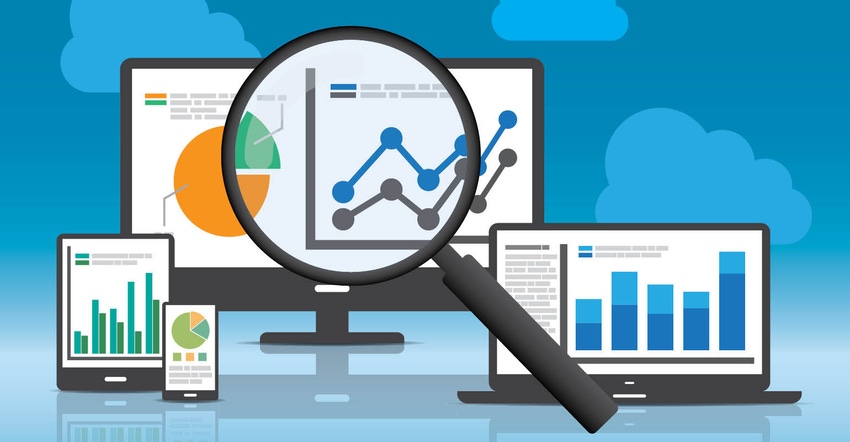November 7, 2019

Farmers, ranchers and food companies have a great deal at stake when it comes to food metrics reporting, but much work needs to be done to co-create a data collection and reporting system that works for everyone, according to a new report by the U.S. Farmers and Ranchers Alliance.
"The ultimate goal is to ensure the resiliency of our food and agriculture supply chain in the 21st century," said Erin Fitzgerald, CEO, USFRA. "We can't make progress toward this grand challenge without coordinated metrics that work on the farm and up the supply chain."
The report, "Navigating the Food Metrics Maze: The Quest for Better Data Flow Across the Food Value Chain," analyzed results from interviews with 34 sustainability leaders at food companies, nine representatives from sustainable roundtables, and 20 farmers and ranchers, as well as a quantitative analysis of the public reporting of 84 food companies (processors, consumer packaged goods, food service companies, restaurants and retailers).
Farmers and ranchers are being asked by food companies to measure and report more farm-level data than ever before - things like water use, fertilizer applications, antibiotic use, and more. According to the report, they are attempting to be responsive by adding new on-farm technology that allows them to capture this data accurately, but at an increase in cost and time that they typically shoulder alone.
The report found that the increased demand for data is being driven by companies' desire to manage risk in their supply chains as well as stakeholder pressure for more transparency around food production. Food companies are setting goals that they can only meet through farmer action. This data helps tell the bigger story around farms' and ranches' resiliency to the impact of climate change, and how farmers and ranchers are safely and sustainably meeting the needs of a growing population.
Many of the farmers interviewed said that often the metrics they were asked to report didn't really make sense for their particular context, and that many of the requests they received have not considered the farmers' perspective. Some also expressed that there needs to be a balance between transparency and confidentiality of data - or at the very least, to understand how the collected data will be used.
"Throughout the food supply chain, many of us are already operating on tight margins, but farmers understand the need to stay competitive," said Chip Bowling, USFRA chairman and a seventh-generation farmer from Newburg, Md. "We need to have a seat at the table in creating sustainable food goals."
USFRA advocates lowering the burden of farm-level data collection and reporting for all, while also allocating the value it creates, and investment it requires, throughout the food chain.
Source: U.S. Farmers & Ranchers Alliance, which is solely responsible for the information provided and is wholly owned by the source. Informa Business Media and all its subsidiaries are not responsible for any of the content contained in this information asset.
Read more about:
U.S. Farmers And Ranchers AllianceYou May Also Like




